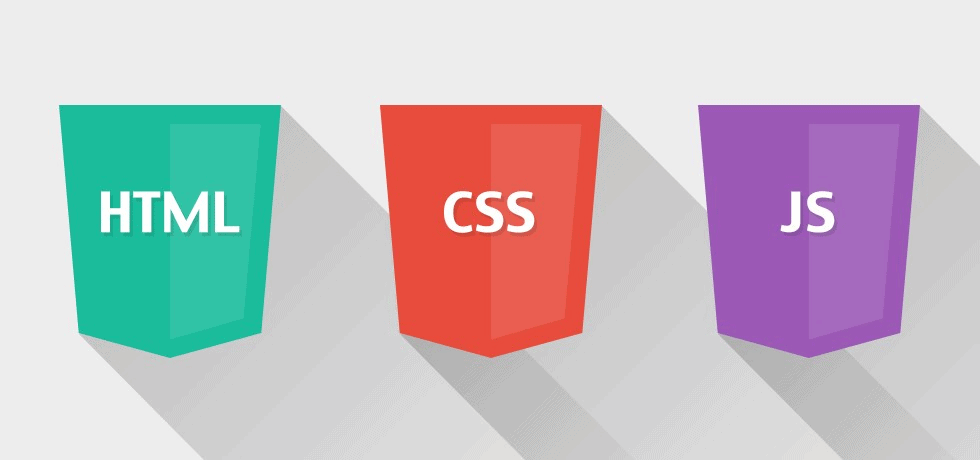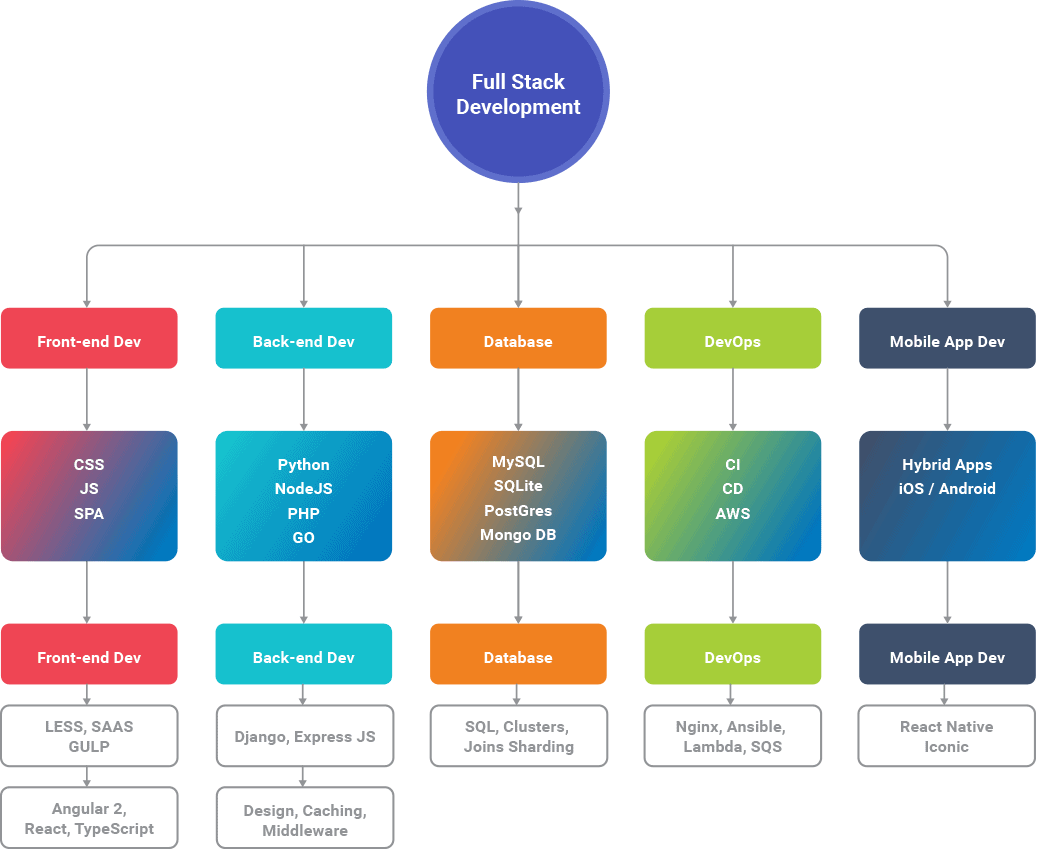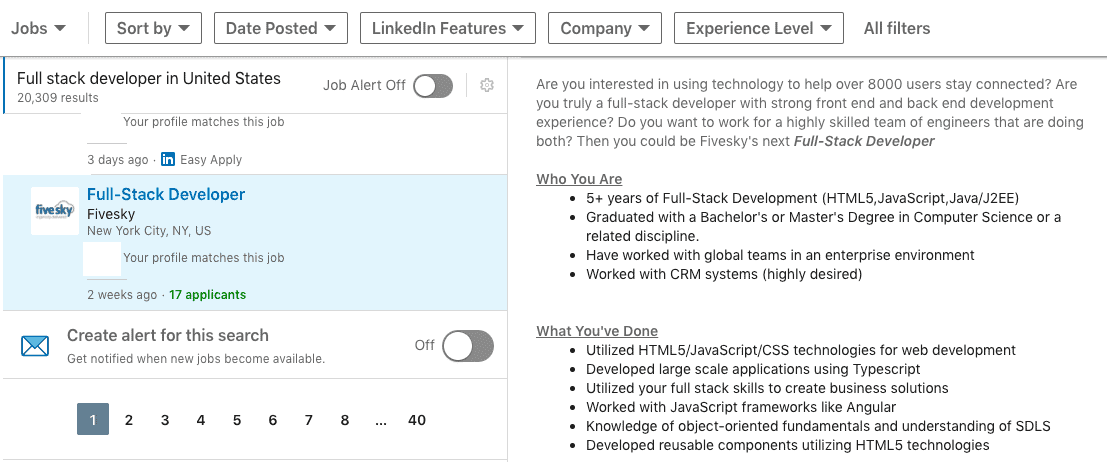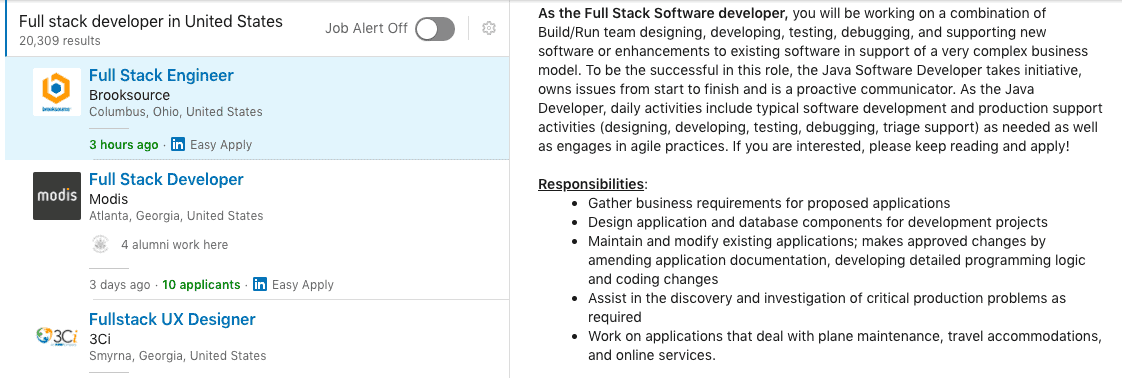
What is a full stack developer? Key skills and responsibilities

For anyone new to tech recruitment, understanding the differences between various IT positions can seem intimidating. Where does the line between front end and back end development fall? Also, do the terms ‘full stack developer’, ‘full stack web developer’, and ‘full stack engineer’ all mean the same?
In order to recruit the best-fitting candidates for your company, it’s crucial that you understand what each role entails.
In the following article, we’re going to shed light on each of these positions, with a special emphasis on the full stack developer’s profile. We’ll help you determine the skills, technologies, and experiences you can expect from each candidate. By understanding the differences, you’ll be able to build a team of developers whose skills ideally complement one another.
What is a Front End Developer?
In the most simple terms:
"Front-end developers create everything on a website that users see, touch, click, and use”.
Front end development is about much more than just how the website looks; it’s also about how the design is implemented and how it works on the web.
What skills should a Front End Developer possess?
For starters, frontend developers need to have a profound knowledge of HTML, CSS, and JavaScript (or TypeScript). Some sources, like Front End Masters, also list basic to advanced DOM, HTTP/URL, and browser skills.
 Fonte da imagem: Codium
Fonte da imagem: Codium
Here are several other common requirements:
- High proficiency in JavaScript frameworks (for example, Angular e Reagir)
- Knowledge of front end frameworks (most commonly Bootstrap)
- Proficiency in front end libraries (for example jQuery e LESS)
- An understanding of code version control tools (for example Git)
- Basic knowledge of graphic tools like Photoshop or GIMP
- Experience in debugging with JavaScript-based tools and working around cross-browser compatibility issues
You can find a comprehensive list of requirements and responsibilities in our front end developer job description template.
Now, how is this job different from that of a back end developer?
What is a Back End Developer?
Back end developers are responsible for server-side application logic as well as for integrating with the front-end part of your website or app.
The best way to understand how front end and back end developers complement one another is by using the hotel analogy. Your front end developers interact with your customers – they’re like the ‘front house’ of your website or app. Meanwhile, back end developers are the folks working behind the scenes, in the back office, to ‘power’ the software (the server, application, and database).
Now, while back end developers don’t work on the visual part of the software, they cooperate closely with front end developers to make sure that the software is fully operational and everything ‘clicks’.
What skills should a back end developer possess?
The answer to this question isn’t as straightforward as in the case of frontend developers. The reason for this is that a back end developer’s skillset is largely dictated by the web development languages they use.
However, Guru99 does a great job of explaining the top 4 fundamental skills any back end developer needs to have:
- High proficiency in web development languages (some examples of the most popular languages include PHP, Python, Ruby, and server-side JavaScript)
- A deep understanding of database and cache (also referred to as DBMS technology); examples include MongoDB, MySQL, Oracle, and Redis
- Exposure to handling servers – i.e. Apache, Nginx, IIS servers, and others
- Knowledge of web services and API (i.e. knowledge of how REST & SOAP are consumed)
 Fonte da imagem: Guru99
Fonte da imagem: Guru99
Now that we know what front end and back end developers do, let’s take a look at the full stack developer silhouette.
What is a Full Stack Developer?
In a nutshell, as we’ve explained in a previous piece:
“A full stack developer is one who is comfortable working with both backend and frontend technologies.”
However, the developer community’s opinion differs as to whether it’s actually possible to be a genuine 360 developer. After all, it can take years to master a single language and it’s frameworks – not to mention understanding others!
Let’s see what is expected from a full stack developer, and how proficient one must be in each of the key areas.
What skills does a full stack developer need?
As mentioned above, a full stack developer needs to possess a certain level of proficiency in both front end & back end development. They also need to know how to work in DevOps, databases, and (quite commonly) mobile app development.
Here’s how HackerNoon breaks down each of these areas:

Fonte da imagem: HackerNoon
Compared to the front end and back end skillsets, it seems quite overwhelming, right? The question is:
How in-depth should a full stack developer really know each language?
As explained by Webopedia:
“Full-stack developers and engineers are not expected to be masters in all of these programming languages; rather, those in a full-stack development role should have a solid proficiency in one or more of these languages while also understanding how front-end and back-end technology need to integrate and work together efficiently”.
So, a full stack developer simply needs to be able to find their way around regardless of the task they’re currently working on. This position is highly essential in case any incident arises after the website is developed.
Let’s take a look at how job postings for full-stack developers often look.
Examples of full stack developer job descriptions
It’s common for full stack developer job offers to include the following requirements:
- HTML5, CSS3, JavaScript for web development
- Knowledge of JavaScript frameworks (for example, AngularJS)
- Programming languages – for example, Ruby or Python
- Knowledge of security best practices, version control, databases
- Basic UX and design principles
Here’s an example of a Full Stack Developer job offer on LinkedIn:
 Fonte da imagem: LinkedIn
Fonte da imagem: LinkedIn
When you peruse full stack developer job openings, you might also notice some mentions of terms like ‘MERN’ or ‘MEAN’. What are they?
These acronyms are examples of two popular JavaScript tech stacks. Some other examples include LAMP, Django, and Ruby on Rails.
For instance, here’s an example of a MEAN Stack Developer job offer:
 Fonte da imagem: LinkedIn
Fonte da imagem: LinkedIn
You might now also be wondering – are full stack developers in high demand, or do employers prefer to hire separate front and back end developers? Also, how do they fit onto a team?
How do full stack developers fit onto a team
Let’s start off by answering the first question.
In 2019, “The U.S. Bureau of Labor Statistics estimated that full-stack development employment will increase from 135,000 to over 853,000 by the year 2024”. This means that employers value having on board someone with a holistic tech approach.
In fact, full stack developers’ knowledge of various concepts, makes them equipped to provide complex solutions and come up with ideas other, strictly specialized developers might not be able to see.
For bigger companies, a full stack developer can be a great asset, as they will lead with the ‘broader picture’ in mind. For smaller projects, hiring a full stack developer can also lead to time and financial savings (i.e. hiring one developer instead of two separate, front, and back end developers).
Last but not least, let’s clarify:
How are Full Stack Web Developers and Full Stack Engineers different?
The term ‘full stack engineer’ is used to describe a full stack web developer in a senior role, who usually has a greater say on the team or even supervises its members.
Apart from years of experience, the key difference between a developer and engineer position is that the latter also has a strong business or project management background.
While full stack developers tend to be responsible for work on an app/project, engineers are often engaged in working on complex apps or entire systems.
Here’s an example of a Full Stack Engineer job offer where business and project management experience is a must:

Fonte da imagem: LinkedIn
If you want to dive deep into the subject, we recommend that you take a look at our software engineer vs software development comparison.
Summary
Full stack developers play an important role in the development team, as they have knowledge of both front and back end technologies, DevOps, databases, and mobile development. While they’re not experts in all of these disciplines, what they certainly bring to the table is a wholesome view on what’s possible in tech. This, in turn, allows them to propose innovative solutions that leverage a mix of various tools, frameworks, and languages.
With the estimated, 6-fold rise in demand on the job market between the years 2019-24, it’s clear that full stack developers will be a valuable asset for companies for many years to come.
Fonte da imagem: Mimi Thian sobre Unsplash




